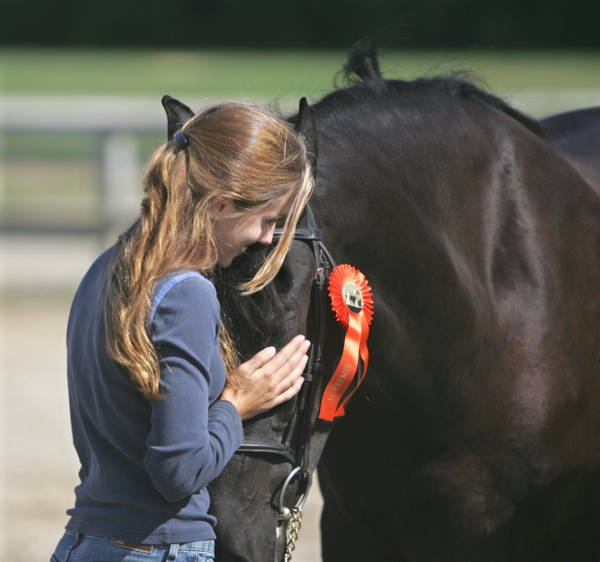Control Your Mare’s Environment
After delivering her foal, a mare should be kept with her new baby in as much of a controlled environment as possible. A clean, dry, and draft-free area with protection from the elements are essential. If the weather allows, a small, protected grass paddock is ideal. If this isn’t available, a deeply bedded stall that is at least 12 ft by 12 ft is also good.
During the postpartum period, it is vital that for the mare to get adequate exercise. Regular movement promotes healthy gastrointestinal function, uterine involution, and stimulates appetite. If the mare is left in a stall for a long period of time, she is at risk to develop access to intrauterine fluid, which can ultimately lead to sepsis. But don’t let this scare you- as long as your mare can move regularly, it’s unlikely she will develop these issues.
Regular Mare Monitoring
Shortly after your mare gives birth, you should do a simple initial examination. Ideally, this exam should be done within 8-12 hours after birth. You should observe your mare in these ways:
- Evaluate her overall behavior and interactions with her new baby. Is she showing interest in the foal? Is she looking bright and alert?
- Go over her general body condition. Check her pulse, temperature, breathing, and gut sounds. Has she begun to munch on hay or drink water?
- Examine the placenta. A mare should pass the placenta within a few minutes up to a few hours after birth. Once it is passed, you should look it over to make sure it is intact. If parts seem to be missing, contact your vet. If possible, put it in a bucket of water with a lid to preserve it for your vet to look over.
It’s a good idea to continue monitoring your mare in this way at least twice daily for up to a week after she delivers her foal.
Signs of Concern
While we always hope that the foaling process with be smooth, unfortunately, this is not always the case. You need to know the signs that warrant a call to your vet:
- Excessive bleeding
- Not able to stand within 30 minutes of birth
- Uninterested in her foal
- Signs of depression
- Signs of colic or abdominal pain
If your mare is exhibiting any signs, you should call your vet immediately. Many serious complications can occur but aren’t always obvious from the outside. The only way to know for sure that your mare is healthy is to have her examined by your vet.
Nutritional Needs
Proper nutrition is essential for a healthy mare and foal. As a general rule, a mare post foaling should be fed up to 3% of her body weight in a mixture of forage and concentrates. When you’re looking at grain, energy and protein are the most important factors to consider. For lactating mares, crude protein levels should be about 12%. Calcium is another important nutrient, as it is required for healthy bone growth. For an average-sized mare, 50-60 grams is ideal. For proper calcium absorption, a phosphorus supplement should be fed it. As with all horses, abundant access to clean water is essential to a lactating mare. If you have specific questions about your mare’s diet, your vet should be able to give you some great recommendations.
Post-Foaling Mare Exam
Even if your mare and foal appear to be healthy and happy, it’s still a good idea to contact your vet to set up a post-foaling exam. This is also a great opportunity for you to address any questions or concerns that you might have. An essential part of the post-foaling exam is a blood test for the foal. The vet needs to test for antibodies that are passed from the mare to her baby in the first milk, the colostrum. If antibody levels in the foal are not where they should be, your vet may recommend the appropriate supplements. Also, if you’re looking to get your mare back under saddle again, this would be a good time to discuss it with your vet. Many vets recommend waiting between 6-8 weeks, but this time frame can vary depending on how the foaling process went.

I’ve been around horses my entire life, but my Friesian journey started just over 20 years ago. Our horses have always been a part of our family. They have traveled with us as we relocated from Vermont to New York to Iowa and finally, to Arizona. I can’t wait to share our story with you!
Related
Dec 12, 2021
How to Care for Mares After Giving Birth to a Foal

Leave a Reply Cancel reply
@starlitridgefriesiansandfells
LET'S BE FRIENDS ON INSTAGRAM